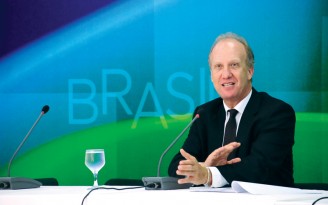
Education and Complete Citizenship on the Global Agenda
LBV’s statement for the United Nations ECOSOC High-Level Segment presents its recommendations for sustainable development
By the Editorial Staff
Wednesday | June 25, 2014 | 2:35 PM | Last update: September 22, 2016, 4:07 PM (Brasilia time)
The present statement submits the recommendations of the Legião da Boa Vontade / Legion of Good Will (LBV) to the theme of the 2014 High-Level Segment of the United Nations Economic and Social Council (ECOSOC): “Addressing on-going and emerging challenges for meeting the Millennium Development Goals in 2015 and for sustaining development gains in the future”. The LBV advocates education as being central to the global development agenda and its interrelationship with health, gender issues, productive inclusion, sustainability, and social networking.
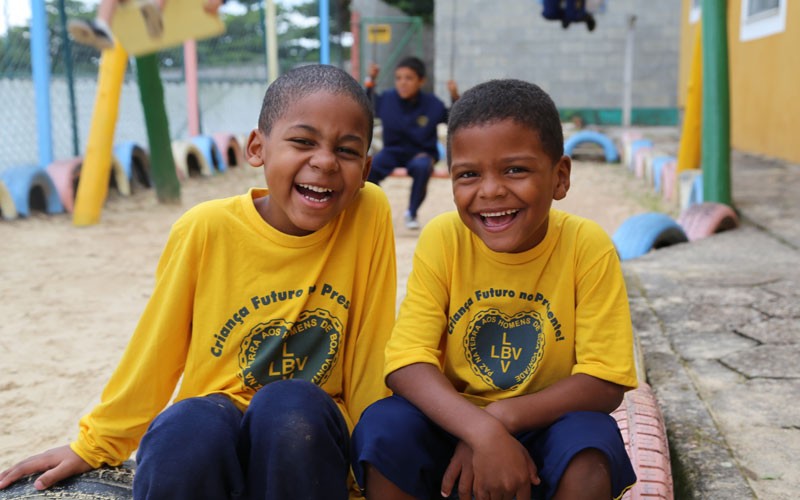
These recommendations are the result of more than six decades of work carried out by the LBV and of the debates it promoted during the 10th Solidary Society Network Multi-stakeholder Forum—a series of events held between November 20 and 29, 2013, in Argentina, Paraguay, Uruguay, and the Plurinational State of Bolivia. The meetings were supported by the United Nations Department of Economic and Social Affairs (UN/DESA) and attended by representatives from several local entities of the UN system (UNIC, UNESCO, UNICEF, and the UN Global Compact).
LBV’s lines of action
The Organization has autonomous bases in the four countries mentioned previously, as well as in the United States and in Portugal. It also has 77 assistance units in Brazil. It was founded on January 1, 1950 (World Peace Day) in Rio de Janeiro, Brazil, by journalist, radio broadcaster, and social activist Alziro Zarur (1914-1979). He was succeeded as president of the LBV by journalist, radio broadcaster, and writer José de Paiva Netto. The Organization operates through its social service centers, schools, homes for the elderly, campaigns, and emergency actions. In 2013, its social work had an impact on more than 277,000 people in Brazil and in six other countries where it has autonomous bases.
In Brazil alone, from the year 2000 (first year of the Millennium Development Goals - MDGs) to 2013, 90 million services and benefits were provided for people living in a vulnerable or social risk situation, an investment made largely possible by the donations of individuals. Besides this, the Organization also advocates on public policies by participating in councils for the defense of rights, a way in which civil society maintains dialogue with Government administrators. Internationally, it has been associated with the United Nations Department of Public Information (DPI) for more than twenty years and has had general consultative status with ECOSOC for fifteen years (since 1999).
Communication has been an important part of the work of the Legion of Good Will since its foundation. It has existed as an idea and an all-encompassing ecumenical movement since the beginnings of the radio program Hora da Boa Vontade [Good Will Hour], which started months before (on March 4, 1949) on Globo Radio in Rio de Janeiro. Because of this the LBV uses today an extensive network of radio, television, publications, and the Internet in defense of social and environmental causes and to promote education, culture, social development, and citizenship values. Having prepared hundreds of professionals who operate in the communication market with this unique vision, it is currently structuring an audio-visual technical school in São Paulo, Brazil.
Education and the MDGs
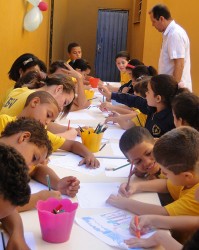
Presidente Prudente, SP — As crianças criam seus desenhos sob a orientação do artista plástico Cido Oliveira.
Commitment to quality education is the Organization’s focus. At a time when nations are defining their common priorities for education for the coming years (within the Sustainable Development Goals), the LBV argues for the need to add to the current progress indicators mechanisms that allow the assessment not only of proficiency in language and exact sciences, but also in the number of cases of intolerance, violence, unhealthy behavior (including the consumption of both legal and illegal drugs), solidary and democratic participation, subjective well-being, and adherence to sustainable habits.
These are just some of the statistics whose improvements are feasible if a preventive approach of public policies is strengthened, especially education policies. The Legion of Good Will uses several strategies to regularly encourage reflection among students. These strategies include children and youth forums, as well as cultural competitions that involve debate workshops and artistic production. Held during the entire year by means of social and educational activities, the forums are open to the community, in which children and young people are the protagonists, even in terms of running the events.
Another action concerns child and youth safety. Since 60 percent of all the people assisted by the LBV through its social and educational programs are children and adolescents from low-income families, the Organization is engaged in multi-stakeholder initiatives that aim to protect its clients who are vulnerable to exploitation and human trafficking.
Its schools receive children starting at 4 months old fulltime, thus allowing their mothers to work and increase the family income. This same path is also followed by the Governments of the countries where the LBV operates. They have challenged themselves to extend this benefit to the greatest number of children possible who are enrolled in the public school system.
The LBV focuses on the poorest families seeking to compensate the social disadvantages to which the children of such families are subject to. Therefore, those assisted and their families—generally just the mother—are monitored by a multidisciplinary team, comprised of social workers, psychologists, nutritionists, and educators. The communities in which they live are included in social inclusion programs and projects that contribute to sustainable development. To meet the demands for food, education, income, health, and environment, this work is aligned with activities of public bodies, other organizations, and partner professionals.
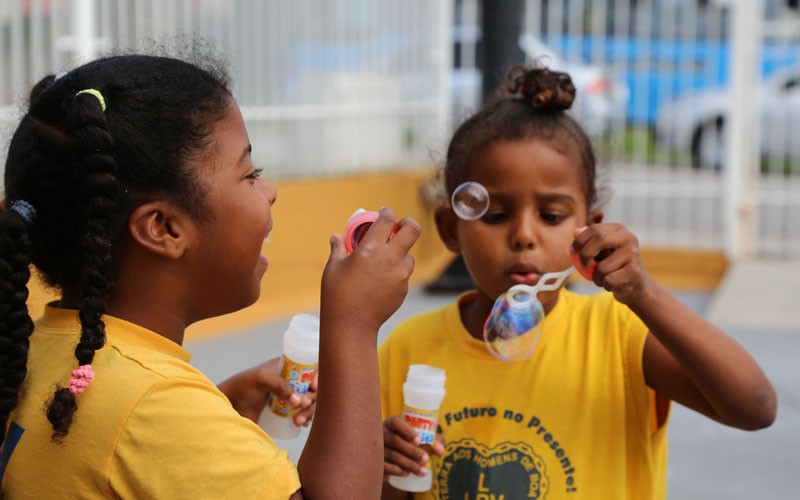
This full attention given to individuals has achieved significant results, such as zero dropout rates and a consolidated culture of peace environment. Academic results are also higher than the national average. This shows that spaces for reflection and for experiencing citizenship and ecumenical, i.e. universal, values help improve students’ school performance.
In the health area, for example, the Organization has been carrying out its educational campaign “Don’t use drugs. To Live is Better!” for more than two decades. Efforts in this direction are extremely necessary. According to the World Health Organization (WHO), 14 percent of the global burden of disease is attributed to mental and neurological disorders and to the abuse of psychoactive substances. The high cost of treatment for these illnesses, to which a minority has access to, can be much reduced in the case of consumption of drugs and unprescribed medication. Data from the annual report of the International Narcotics Control Board for 2013 show that for every dollar spent on prevention, as many as ten dollars can be saved in subsequent Government costs.
The LBV has systematized its educational experience by means of the Pedagogy of Affection (directed at children up to the age of 10) and the Ecumenical Citizen Pedagogy (starting at the age of 11), which are part of the teaching method created by educator Paiva Netto. With its consolidated methodology—the Learning Method through Rational-Emotional-Intuitive Research (MAPREI)—and curricular structure that takes into account the parameters of each country, this educational line has increasingly been the object of scientific studies and training for educators in both public and private education systems in many nations.
When José de Paiva Netto inaugurated the LBV’s Educational Center in Rio de Janeiro in 1996, in a speech he addressed to more than 100,000 people, he declared:
“. . . People complain that children and young people on the streets rob, kill, break into houses, and upset other children and young people who have more privileged lifestyles. However, they are only giving back what they have been offered. If garbage is given to them, what would they give back? So, why complain? . . . This issue of children and young people on the streets deserves a serious reflection so that the right measures can be put into practice.”
Multi-stakeholder Forum
The 10th Solidary Society Network Multi-stakeholder Forum convened Government representatives, companies, civil society organizations, academia, and ordinary citizens from four South American countries to discuss “Future paths for Education—Education on the post-2015 global development agenda”, in a universal approach, but one that did not fail to consider inequality and the cultural differences of each location.
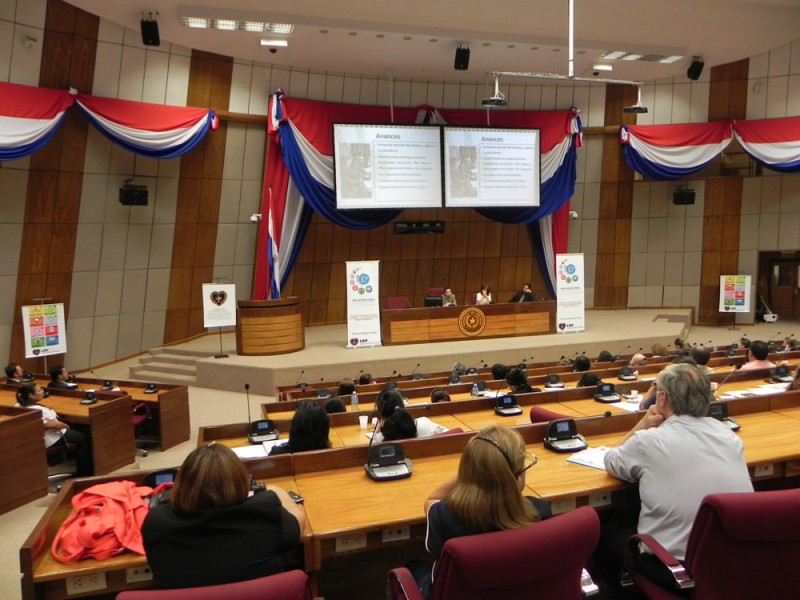
The forum is part of a continuous process of networking between civil society organizations, public bodies, and companies. It aims to boost the results of its social actions. In order to strengthen the network, in several cities it arranges, in partnership with other organizations, skills-building training meetings with social players, mainly community leaders, thus helping them develop more qualified actions that are aligned with public policies and with the international commitments of each country regarding human rights.
Below are some of the recommendations and good practices suggested by the multistakeholder forum:
- Link the educational process to sustainable development agendas at local, regional, and national levels. Implement policies to include young people in decision-making political processes.
- Prepare social responsibility plans in universities based on successful experiences. Establish mandatory social or community service in their curricula.
- Reformulate teaching plans and train teachers to encourage greater and effective student protagonism.
- Set up and carry out, in basic education schools, programs that support parents, teachers, and legal guardians with regard to responsible consumption, providing them with the tools for addressing this theme with children of different ages and from different social backgrounds.
- Create new global indicators for assessing educational policies as far as gender equality is concerned, because, despite the advances in female education, there are still factors that generate inequality, the main one being discrimination against certain ethnic groups.
- Formulate, in countries with a history of colonization, affirmative action policies for the original languages within the educational context.
- Create within the scope of the United Nations a Consultative All-Encompassing Ecumenical Spirituality Council, which will interact with local Government and with international organisms, and recognize Spirituality as a constitutive right of human dignity. Introduce the subject at all educational levels and encourage it through mass communication.
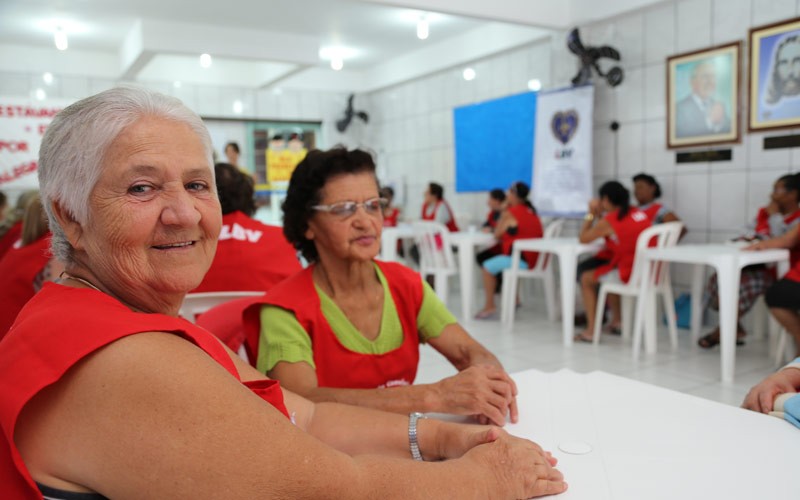
Ecumenism
The all-encompassing ecumenical cause is defended by the Legion of Good Will as the way to promote a Culture of Peace and ethnic and religious tolerance. This concept “transcends the religious aspect,” since it preaches “the universal reconciliation of all human and spiritual knowledge in a powerful force in the service of all people,” as Paiva Netto defines it.
Conclusion
The LBV is open to cooperate with countries and organizations in expanding the contents presented here and in replicating its social technologies.
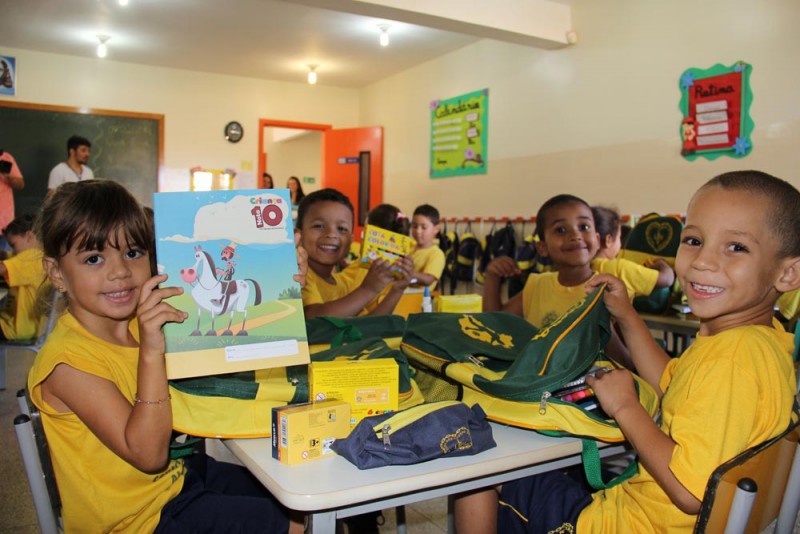
Felicidade ao abrir a mochila contendo material escolar e pedagógico
In the Organization’s view, the most efficient social technology is the effective investment in education. According to the thesis defended for decades by educator Paiva Netto: “When fighting in favor of sustainability, we must work together for it to be understood in its deepest sense and not only on economic thinking that survives through greed, which not only liquidates human creatures by dint of unemployment and hunger in various regions of the planet, but equally by a lack of instruction, which denies young people better perspectives. However, everywhere we look there are efforts being made by people who have decided to correct such situations that hinder the growth of many countries. And it is not enough to instruct; we need to educate and re-educate! In various places where the economy has become stronger, after a certain time, because of a lack of investment in ethical and spiritual principles, the violence that had reduced, reappears, coming so many times from arrogance with those on their borders or beyond them who have less than they do. And then it affects international relationships. Why? Because there was lack of education. And much more than that, Re-education, which is Education with all-encompassing Ecumenical Spirituality.”
